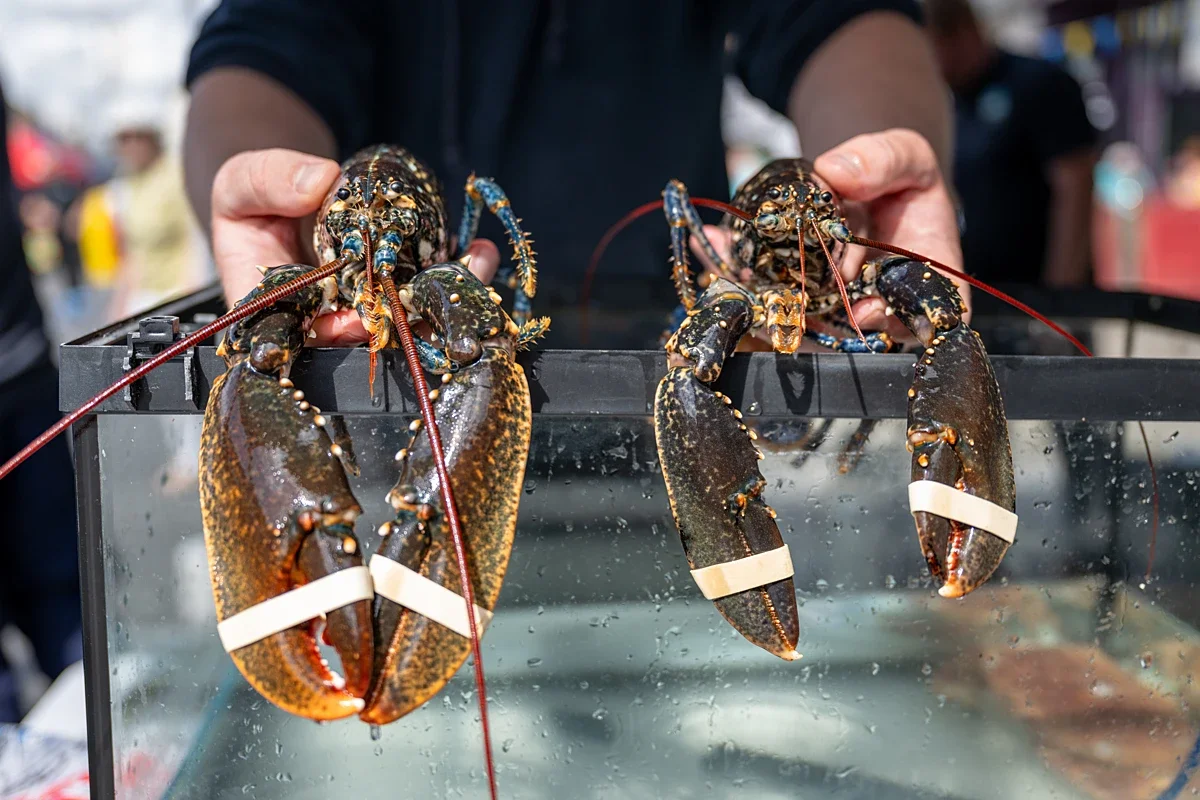BMW Launches New Cars with Vegan Leather Interior as Standard
The all-electric BMW 5 Series Touring uses innovative, animal-free materials that are as robust as leather and more sustainable.
Credit: BMW Group
Leading car manufacturer BMW is launching its latest model - and it features a completely vegan interior as standard, in a move that shows how the automobile industry is continuing to develop and invest in more planet- and animal-friendly materials.
In the past, car interiors have often used animal leather to line the seats, steering wheel, and gear stick.
But in recent years, consumers and brands have become increasingly aware of the cattle industry’s devastating environmental footprint. This has led many leading designers and manufacturers to develop animal-free alternatives, which often incorporate cutting-edge technology to craft vegan leather that can be made from a variety of materials including cork, mushroom, and cactus.
Now, the new BMW 5 Series Touring models will feature interiors made from a vegan leather called Veganza. Set to launch in Europe in May and other markets in June 2024, the new line of cars will include Veganza interiors as default, in an effort to make the manufacturing process more sustainable.
Credit: BMW Group
BMW has previously stated that by replacing animal leather interiors with vegan alternatives, the brand will reduce the CO2 emissions of surface materials by 85 percent.
The planet-damaging emissions associated with leather interiors includes the methane gas from rearing cows, as well the processing of cowhide, which is highly energy- and water-intensive. In contrast, plant-based materials such as cactus leather, for example, do not require traditional tanning with chemicals, and do not produce methane gas.
As well as being kinder to the planet and animals, the quality of the interior remains unchanged with the switch. Uwe Köhler, Head of Body, Exterior and Interior Development of BMW Group, has described vegan leather as “the steering wheel of the future”, which “meets the outstanding expectations of a premium brand and its customers and is equivalent to leather in terms of feel, appearance and functionality.”
A Leather-Free Automobile Industry
The move away from leather is part of the BMW Group’s commitment to reduce CO2 emissions in the production process to help the brand achieve climate neutrality by 2050.
Credit: BMW Group
And it’s not the only automobile brand which is ditching traditional leather with something more sustainable.
The iconic car manufacturer MINI is already leading the way with its plans to make all future cars leather-free.
Volvo has also announced that all battery-electric models will now be animal-leather free, as part of its mission to become a circular business by 2040. Meanwhile, Volkswagen, Mercedes-Benz, and Tesla are among those who also offer animal leather-free car interiors.
The animal-leather industry is worth over $100 billion, with more than a billion animals slaughtered for their skins every year. To cover the interior of a standard car, it takes an average of three cows’ hides, with some requiring as many as 15, according to People for the Ethical Treatment of Animals.
Read More: Apple Ditches Animal Leather to Meet Sustainability Targets.
We Have A Favor To Ask…
Species Unite amplifies well-researched solutions to some of the most abusive animal industries operating today.
At this crucial moment, with worldwide momentum for change building, it’s vital we share these animal-free solutions with the world - and we need your help.
We’re a nonprofit, and so to keep sharing these solutions, we’re relying on you - with your support, we can continue our essential work in growing a powerful community of animal advocates this year.






